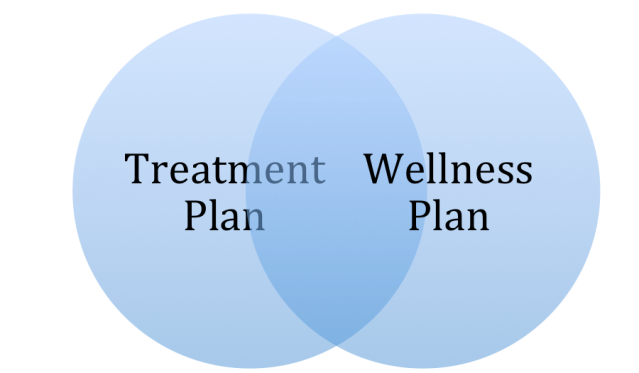If we could give every individual the right amount of nourishment and exercise, not too little and not too much, we would have found the safest way to health.” –Hippocrates 420 B.C – 370 B.C.
 Healthcare providers have been prescribing lifestyle improvement for thousands of years. The evidence has been built from the observations of Hippocrates all the way to the neuroscience of today. We know, from mountainous reams of data, that lifestyle affects the course of an illness or health challenge. The challenge for the healthcare provider of today is to see the “lifestyle prescription” translated into lasting lifestyle change. Many well-intentioned healthcare professionals have attempted to educate and admonish their patients into losing weight, ceasing the use of tobacco, managing their stress better, getting more sleep, being medically compliant/adherent, etc. Seeing actual success in behavioral change happening far too seldom, many have abandoned such efforts and just reach for the pharmaceutical prescription pad.
Healthcare providers have been prescribing lifestyle improvement for thousands of years. The evidence has been built from the observations of Hippocrates all the way to the neuroscience of today. We know, from mountainous reams of data, that lifestyle affects the course of an illness or health challenge. The challenge for the healthcare provider of today is to see the “lifestyle prescription” translated into lasting lifestyle change. Many well-intentioned healthcare professionals have attempted to educate and admonish their patients into losing weight, ceasing the use of tobacco, managing their stress better, getting more sleep, being medically compliant/adherent, etc. Seeing actual success in behavioral change happening far too seldom, many have abandoned such efforts and just reach for the pharmaceutical prescription pad.
In recent years, however, there has been an exciting movement in the field of medicine that looks at how to use “lifestyle interventions” as first-line treatment.
“Recent clinical research provides a strong evidential basis for the preferential use of lifestyle interventions as first-line therapy. This research is moving lifestyle from prevention only to include treatment–from an intervention used to prevent disease to an intervention used to treat disease.” –The American College Of Lifestyle Medicine
The Lifestyle Medicine Movement has done much to establish an evidence base and it continues to examine research that distinguishes what appears to work for lifestyle improvement. Much of its attention has focused on nutrition, but more and more the field is realizing the importance of health and lifestyle behavior.
Wellness and health coaching has become the delivery mechanism for wellness programs, and its potential for the same vital role is being seen in Lifestyle Medicine. The reality is that the vast majority of clients that most wellness/health coaches see are already health-challenged in some way. They may already have a chronic lifestyle-related illness, or multiple risk factors that set them up for needing serious preventative help. Wellness/health coaches that work for disease management companies, insurance companies and many corporate wellness programs are already working with caseloads populated primarily by lifestyle medicine patients.
At past Lifestyle Medicine conferences, I’ve presented on “Wellness Coaching And Lifestyle Medicine: Covering The Whole Continuum”. and “Delivering The Behavioral Side Of Lifestyle Medicine: Wellness Coaching Skills & Concepts”. Together with other presenters on wellness coaching we have experienced a strong positive response from an audience made up primarily of physicians.
 One of the key concepts of my talks that was especially well received was the idea of how the Treatment Plan needs to be integrated with the Wellness Plan.
One of the key concepts of my talks that was especially well received was the idea of how the Treatment Plan needs to be integrated with the Wellness Plan.
Co-creating a Wellness Plan with our clients is one of the primary tasks for the wellness coach. Together we work with a structure that insures the client’s plan for lifestyle improvement will lead to success. A key part of that Wellness Plan will always be the “Lifestyle Prescription” that the client’s treatment team is recommending. What is key is that the Wellness Plan supports The Treatment Plan.
I will be talking further about this concept in my forthcoming book on the more advanced skills and methods of wellness coaching, but here is a sketch of the two plans and the way they overlap.
Treatment Plan
- Diagnostically Derived
- Treatment Provider Devised
- Prescriptive
- Responsibility on Provider to administer, responsibility on client to follow
- Usually does not accommodate patient’s circumstances or abilities, may accommodate patient’s capacities.
- Problem solving, solution finding oriented
- Purposed for resolution of illness and disease, reduction of symptoms, healing
- “Lifestyle Prescription” focuses on recommended behavioral changes leading to Lifestyle Medicine outcomes
- Dependent greatly upon medical compliance/adherence
Wellness Plan
- Derived through exploration and self-assessment combined with treatment recommendations.
- Co-created by “client” and “coach”
- Non-prescriptive – client centered
- Responsibility on client to follow with coach’s accountability and support
- Not only accommodates, but is derived from client’s circumstances, abilities and capacities.
- Designed to eliminate barriers and develop additional support
- Possibility, growth and self-actualization oriented.
- Purposed for behavioral change and lifestyle improvement
- Includes assisting client with medical compliance/adherence
Overlap Of Treatment And Wellness Plans
- The Wellness Plan (WP) supports the Treatment Plan (TP)
- TP identifies critical areas for recommended lifestyle improvement
- Through “client-centered communication” WP aligns with the goals of the TP
- Client engages, with coaching support, in lifestyle improvement behaviors that positively affect treatment outcomes
- WP helps client with organization, accountability, etc., improving attendance for medical appointments and management of medications, self-testing/self-care
- WP helps client make best us of medical appointments (self-advocacy)
- WP helps client report more accurately to treatment team about changes in lifestyle behavior (providing more data for treatment decisions)
 When clients are operating on a Wellness Plan that they have truly helped co-create with their own buy-in, the opportunity for weaving in Areas of Focus, Goals and Action Steps that support what their treatment team wants to see becomes obvious. Clients then have the structure and support they need to carry out the goals of the Lifestyle Prescription.
When clients are operating on a Wellness Plan that they have truly helped co-create with their own buy-in, the opportunity for weaving in Areas of Focus, Goals and Action Steps that support what their treatment team wants to see becomes obvious. Clients then have the structure and support they need to carry out the goals of the Lifestyle Prescription.
Physicians and other healthcare providers can already start making use of wellness and health coaching as a delivery mechanism for the behavioral change they would love to see. Many of their patients already have wellness coaching as an employee benefit. Their company’s wellness program may already provide it, or they may contract with a wellness coaching provider company. More and more employees have wellness/health coaching available through their insurance provider.
Wise medical organizations and practices are hiring wellness coaches to become part of their staff or are outsourcing to them. Healthcare providers are sometime “wearing two hats” and combining their treatment work with coaching. Others are becoming more “coach-like” in their interactions and are then handing the patient off to the wellness coach for the longer process of lifestyle improvement.
The Real Balance Wellness & Health Coach Certification curriculum (http://www.realbalance.com) has included how coaches fit into the Lifestyle Medicine approach for over a decade. Our students come to us as a resource for learning how they can help deliver the lifestyle improvement that their Lifestyle Medicine clients seek.
Wellness Coaching to support Lifestyle Medicine is not just an idea whose time has come, it has already arrived!
Originally published on Real Balance blog. Reprinted with permission.
Dr. Michael Arloski is the CEO and Founder of Real Balance Global Wellness Services, Inc. (www.realbalance.com). Real Balance has trained thousands of wellness coaches worldwide. Dr. Arloski is a board member of The National Wellness Institute, and a founding member of the executive team of The National Consortium For Credentialing Health and Wellness Coaches. He is author of the leading book in the field of wellness coaching: Wellness Coaching For Lasting Lifestyle Change, 2nd Ed.


